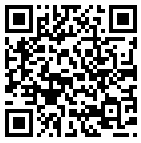"...the right to property is a right to action, like all the others: it is not the right to an object, but to the action and the consequences of producing or earning that object. It is not a guarantee that a man will earn any property, but only a guarantee that he will own it if he earns it."
Man's Rights
by Ayn Rand
If one wishes to advocate a free society—that is, capitalism—one must realize that its indispensable foundation is the principle of individual rights. If one wishes to uphold individual rights, one must realize that capitalism is the only system that can uphold and protect them. And if one wishes to gauge the relationship of freedom to the goals of today’s intellectuals, one may gauge it by the fact that the concept of individual rights is evaded, distorted, perverted and seldom discussed, most conspicuously seldom by the so-called “conservatives.”
“Rights” are a moral concept—the concept that provides a logical transition from the principles guiding an individual’s actions to the principles guiding his relationship with others—the concept that preserves and protects individual morality in a social context—the link between the moral code of a man and the legal code of a society, between ethics and politics. Individual rights are the means of subordinating society to moral law.
Every political system is based on some code of ethics. The dominant ethics of mankind’s history were variants of the altruist-collectivist doctrine which subordinated the individual to some higher authority, either mystical or social. Consequently, most political systems were variants of the same statist tyranny, differing only in degree, not in basic principle, limited only by the accidents of tradition, of chaos, of bloody strife and periodic collapse. Under all such systems, morality was a code applicable to the individual, but not to society. Society was placed outside the moral law, as its embodiment or source or exclusive interpreter—and the inculcation of self-sacrificial devotion to social duty was regarded as the main purpose of ethics in man’s earthly existence.
Since there is no such entity as “society,” since society is only a number of individual men, this meant, in practice, that the rulers of society were exempt from moral law; subject only to traditional rituals, they held total power and exacted blind obedience—on the implicit principle of: “The good is that which is good for society (or for the tribe, the race, the nation), and the ruler’s edicts are its voice on earth.”
This was true of all statist systems, under all variants of the altruist-collectivist ethics, mystical or social. “The Divine Right of Kings” summarizes the political theory of the first—”Vox populi, vox dei” of the second. As witness: the theocracy of Egypt, with the Pharaoh as an embodied god—the unlimited majority rule or democracy of Athens—the welfare state run by the Emperors of Rome—the Inquisition of the late Middle Ages—the absolute monarchy of France—the welfare state of Bismarck’s Prussia—the gas chambers of Nazi Germany—the slaughterhouse of the Soviet Union.
All these political systems were expressions of the altruist-collectivist ethics-and their common characteristic is the fact that society stood above the moral law, as an omnipotent, sovereign whim worshiper. Thus, politically, all these systems were variants of an amoral society.
The most profoundly revolutionary achievement of the United States of America was the subordination of society to moral law.
The principle of man’s individual rights represented the extension of morality into the social system—as a limitation on the power of the state, as man’s protection against the brute force of the collective, as the subordination of might to right. The United States was the first moral society in history.
All previous systems had regarded man as a sacrificial means to the ends of others, and society as an end in itself. The United States regarded man as an end in himself, and society as a means to the peaceful, orderly, voluntary coexistence of individuals. All previous systems had held that man’s life belongs to society, that society can dispose of him in any way it pleases, and that any freedom he enjoys is his only by favor, by the permission of society, which may be revoked at any time. The United States held that man’s life is his by right (which means: by moral principle and by his nature), that a right is the property of an individual, that society as such has no rights, and that the only moral purpose of a government is the protection of individual rights.
A “right” is a moral principle defining and sanctioning a man’s freedom of action in a social context. There is only one fundamental right (all the others are its consequences or corollaries): a man’s right to his own life.
Life is a process of self- sustaining and self-generated action; the right to life means the right to engage in self-sustaining and self-generated action-which means: the freedom to take all the actions required by the nature of a rational being for the support, the furtherance, the fulfillment and the enjoyment of his own life. (Such is the meaning of the right to life, liberty and the pursuit of happiness.)
The concept of a “right” pertains only to action—specifically, to freedom of action. It means freedom from physical compulsion, coercion or interference by other men.
Thus, for every individual, a right is the moral sanction of a positive—of his freedom to act on his own judgment, for his own goals, by his own voluntary, uncoerced choice. As to his neighbors, his rights impose no obligations on them except of a negative kind: to abstain from violating his rights.
The right to life is the source of all rights—and the right to property is their only implementation. Without property rights, no other rights are possible. Since man has to sustain his life by his own effort, the man who has no right to the product of his effort has no means to sustain his life. The man who produces while others dispose of his product, is a slave.
Bear in mind that the right to property is a right to action, like all the others: it is not the right to an object, but to the action and the consequences of producing or earning that object. It is not a guarantee that a man will earn any property, but only a guarantee that he will own it if he earns it. It is the right to gain, to keep, to use and to dispose of material values.
The concept of individual rights is so new in human history that most men have not grasped it fully to this day. In accordance with the two theories of ethics, the mystical or the social, some men assert that rights are a gift of God—others, that rights are a gift of society. But, in fact, the source of rights is man’s nature.
The Declaration of Independence stated that men “are endowed by their Creator with certain unalienable rights.” Whether one believes that man is the product of a Creator or of nature, the issue of man’s origin does not alter the fact that he is an entity of a specific kind—a rational being—that he cannot function successfully under coercion, and that rights are a necessary condition of his particular mode of survival.
“The source of man’s rights is not divine law or congressional law, but the law of identity. A is A—and Man is Man. Rights are conditions of existence required by man’s nature for his proper survival. If man is to live on earth, it is right for him to use his mind, it is right to act on his own free judgment, it is right to work for his values and to keep the product of his work. If life on earth is his purpose, he has a right to live as a rational being: nature forbids him the irrational.” (Atlas Shrugged)
To violate man’s rights means to compel him to act against his own judgment, or to expropriate his values. Basically, there is only one way to do it: by the use of physical force. There are two potential violators of man’s rights: the criminals and the government. The great achievement of the United States was to draw a distinction between these two—by forbidding to the second the legalized version of the activities of the first.
The Declaration of Independence laid down the principle that “to secure these rights, governments are instituted among men.” This provided the only valid justification of a government and defined its only proper purpose: to protect man’s rights by protecting him from physical violence.
Thus the government’s function was changed from the role of ruler to the role of servant. The government was set to protect man from criminals—and the Constitution was written to protect man from the government. The Bill of Rights was not directed against private citizens, but against the government—as an explicit declaration that individual rights supersede any public or social power.
The result was the pattern of a civilized society which—for the brief span of some hundred and fifty years—America came close to achieving. A civilized society is one in which physical force is banned from human relationships—in which the government, acting as a policeman, may use force only in retaliation and only against those who initiate its use.
This was the essential meaning and intent of America’s political philosophy, implicit in the principle of individual rights. But it was not formulated explicitly, nor fully accepted nor consistently practiced.
America’s inner contradiction was the altruist-collectivist ethics. Altruism is incompatible with freedom, with capitalism and with individual rights. One cannot combine the pursuit of happiness with the moral status of a sacrificial animal.
It was the concept of individual rights that had given birth to a free society. It was with the destruction of individual rights that the destruction of freedom had to begin.
A collectivist tyranny dare not enslave a country by an outright confiscation of its values, material or moral. It has to be done by a process of internal corruption. Just as in the material realm the plundering of a country’s wealth is accomplished by inflating the currency—so today one may witness the process of inflation being applied to the realm of rights. The process entails such
a growth of newly promulgated “rights” that people do not notice the fact that the meaning of the concept is being reversed. Just as bad money drives out good money, so these “printing-press rights” negate authentic rights.
Consider the curious fact that never has there been such a proliferation, all over the world, of two contradictory phenomena: of alleged new “rights” and of slave-labor camps.
The “gimmick” was the switch of the concept of rights from the political to the economic realm.
The Democratic Party platform of 1960 summarizes the switch boldly and explicitly. It declares that a Democratic Administration “will reaffirm the economic bill of rights which Franklin Roosevelt wrote into our national conscience sixteen years ago.”
Bear clearly in mind the meaning of the concept of “rights” when you read the list which the platform offers:
“1. The right to a useful and remunerative job in the industries or shops or farms or mines of the nation.
“2. The right to earn enough to provide adequate food and clothing and recreation.
“3. The right of every farmer to raise and sell his products at a return which will give him and his family a decent living.
“4. The right of every businessman, large and small, to trade in an atmosphere of freedom from unfair competition and domination by monopolies at home and abroad.
“5. The right of every family to a decent home.
“6. The right to adequate medical care and the opportunity to achieve and enjoy good health.
“7. The right to adequate protection from the economic fears of old age, sickness, accidents and unemployment.
“8. The right to a good education.”
A single question added to each of the above eight clauses would make the issue clear:
At whose expense?
Jobs, food, clothing, recreation(!), homes, medical care, education, etc., do not grow in nature. These are man-made values—goods and services produced by men. Who is to provide them?
If some men are entitled by right to the products of the work of others, it means that those others are deprived of rights and condemned to slave labor.
Any alleged “right” of one man, which necessitates the violation of the rights of another, is not and cannot be a right.
No man can have a right to impose an unchosen obligation, an unrewarded duty or an involuntary servitude on another man. There can be no such thing as “the right to enslave.”
A right does not include the material implementation of that right by other men; it includes only the freedom to earn that implementation by one’s own effort.
Observe, in this context, the intellectual precision of the Founding Fathers: they spoke of the right to the pursuit of happiness—not of the right to happiness. It means that a man has the right to take the actions he deems necessary to achieve his happiness; it does not mean that others must make him happy.
The right to life means that a man has the right to support his life by his own work (on any economic level, as high as his ability will carry him); it does not mean that others must provide him with the necessities of life.
The right to property means that a man has the right to take the economic actions necessary to earn property, to use it and to dispose of it; it does not mean that others must provide him with property.
The right of free speech means that a man has the right to express his ideas without danger of suppression, interference or punitive action by the government. It does not mean that others must provide him with a lecture hall, a radio station or a printing press through which to express his ideas.
Any undertaking that involves more than one man, requires the voluntary consent of every participant. Every one of them has the right to make his own decision, but none has the right to force his decision on the others.
There is no such thing as “a right to a job”—there is only the right of free trade, that is: a man’s right to take a job if another man chooses to hire him. There is no “right to a home,” only the right of free trade: the right to build a home or to buy it. There are no “rights to a ‘fair’ wage or a ‘fair’ price” if no one chooses to pay it, to hire a man or to buy his product. There are no “rights of consumers” to milk, shoes, movies or champagne if no producers choose to manufacture such items (there is only the right to manufacture them oneself). There are no “rights” of special groups, there are no “rights of farmers, of workers, of businessmen, of employees, of employers, of the old, of the young, of the unborn.” There are only the Rights of Man—rights possessed by every individual man and by all men as individuals.
Property rights and the right of free trade are man’s only “economic rights” (they are, in fact, political rights)—and there can be no such thing as “an economic bill of rights.” But observe that the advocates of the latter have all but destroyed the former.
Remember that rights are moral principles which define and protect a man’s freedom of action, but impose no obligations on other men. Private citizens are not a threat to one another’s rights or freedom. A private citizen who resorts to physical force and violates the rights of others is a criminal—and men have legal protection against him.
Criminals are a small minority in any age or country. And the harm they have done to mankind is infinitesimal when compared to the horrors—the bloodshed, the wars, the persecutions, the confiscations, the famines, the enslavements, the wholesale destructions—perpetrated by mankind’s governments. Potentially, a government is the most dangerous threat to man’s rights: it holds a legal monopoly on the use of physical force against legally disarmed victims. When unlimited and unrestricted by individual rights, a government is men’s deadliest enemy. It is not as protection against private actions, but against governmental actions that the Bill of Rights was written.
Now observe the process by which that protection is being destroyed.
The process consists of ascribing to private citizens the specific violations constitutionally forbidden to the government (which private citizens have no power to commit) and thus freeing the government from all restrictions. The switch is becoming progressively more obvious in the field of free speech. For years, the collectivists have been propagating the notion that a private individual’s refusal to finance an opponent is a violation of the opponent’s right of free speech and an act of “censorship.”
It is “censorship,” they claim, if a newspaper refuses to employ or publish writers whose ideas are diametrically opposed to its policy.
It is “censorship,” they claim, if businessmen refuse to advertise in a magazine that denounces, insults and smears them.
It is “censorship,” they claim, if a TV sponsor objects to some outrage perpetrated on a program he is financing—such as the incident of Alger Hiss being invited to denounce former Vice-President Nixon.
And then there is [Chairman of the Federal Communications Commission] Newton N. Minow who declares: “There is censorship by ratings, by advertisers, by networks, by affiliates which reject programming offered to their areas.” It is the same Mr. Minow who threatens to revoke the license of any station that does not comply with his views on programming-and who claims that that is not censorship.
Consider the implications of such a trend.
“Censorship” is a term pertaining only to governmental action. No private action is censorship. No private individual or agency can silence a man or suppress a publication; only the government can do so. The freedom of speech of private individuals includes the right not to agree, not to listen and not to finance one’s own antagonists.
But according to such doctrines as the “economic bill of rights,” an individual has no right to dispose of his own material means by the guidance of his own convictions-and must hand over his money indiscriminately to any speakers or propagandists, who have a “right” to his property.
This means that the ability to provide the material tools for the expression of ideas deprives a man of the right to hold any ideas. It means that a publisher has to publish books he considers worthless, false or evil—that a TV sponsor has to finance commentators who choose to affront his convictions-that the owner of a newspaper must turn his editorial pages over to any young hooligan who clamors for the enslavement of the press. It means that one group of men acquires the “right” to unlimited license—while another group is reduced to helpless irresponsibility.
But since it is obviously impossible to provide every claimant with a job, a microphone or a newspaper column, who will determine the “distribution” of “economic rights” and select the recipients, when the owners’ right to choose has been abolished? Well, Mr. Minow has indicated that quite clearly.
And if you make the mistake of thinking that this applies only to big property owners, you had better realize that the theory of “economic rights” includes the “right” of every would-be playwright, every beatnik poet, every noise-composer and every nonobjective artist (who have political pull) to the financial support you did not give them when you did not attend their shows. What else is the meaning of the project to spend your tax money on subsidized art?
And while people are clamoring about “economic rights,” the concept of political rights is vanishing. It is forgotten that the right of free speech means the freedom to advocate one’s views and to bear the possible consequences, including disagreement with others, opposition, unpopularity and lack of support. The political function of “the right of free speech” is to protect dissenters and unpopular minorities from forcible suppression—not to guarantee them the support, advantages and rewards of a popularity they have not gained.
The Bill of Rights reads: “Congress shall make no law . . . abridging the freedom of speech, or of the press . . .” It does not demand that private citizens provide a microphone for the man who advocates their destruction, or a passkey for the burglar who seeks to rob them, or a knife for the murderer who wants to cut their throats.
Such is the state of one of today’s most crucial issues: political rights versus “economic rights.” It’s either-or. One destroys the other. But there are, in fact, no “economic rights,” no “collective rights,” no “public-interest rights.” The term “individual rights” is a redundancy: there is no other kind of rights and no one else to possess them.
Those who advocate laissez-faire capitalism are the only advocates of man’s rights.
(April 1963)

 12JszXJwXf1rPKA8a9dDPQPeJmVzQgm4g7
12JszXJwXf1rPKA8a9dDPQPeJmVzQgm4g7 



